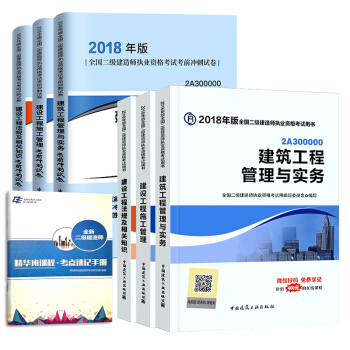![空調係統建模及控製(英文版) [Modeling and Control in Air-conditioning Systems]](https://pic.windowsfront.com/12268243/5a5890afN1a24c58b.jpg)

具體描述
內容簡介
《空調係統建模及控製(英文版)》主要內容包括:集中空調係統狀態空間建模原理、過程及圖論描述方法,空調係統中傳感器虛擬標定技術及虛擬傳感器模型,雙環路模型預測控製模型,空調負荷組閤預測模型,空調係統能量評價分析模型,空氣處理單元機群(AHUs)協同控製模型,以及基於負荷預測的空調係統全局優化節能控製模型。《空調係統建模及控製(英文版)》內容新穎且信息量大,注重於計算機仿真與實驗相結閤以及理論分析和應用實例相結閤,是一本建築環境與設備工程和自動控製學科深度交叉、係統反映新成果的難得的參考書。
《空調係統建模及控製(英文版)》可供從事建築環境與設備工程、熱能工程、製冷與低溫工程、自動控製工程以及相關專業的本科生和研究生參考使用,也可作為從事相關領域研究的科研人員的參考用書。
內頁插圖
目錄
1 Introduction1.1 Background
1.2 Modeling Approaches in HVAC Field
1.2.1 Physics-Based Modeling Approach
1.2.2 Data-Driven Modeling Approach
1.2.3 Hybrid Modeling Approach
1.3 Proposed Methods
1.3.1 State-Space Modeling
1.3.2 Graph-Theory Modeling
1.3.3 Combined Forecasting Modeling
1.3.4 Decomposition-Coordination Algorithm for Global Optimization Model
1.3.5 Virtual Calibration for HVAC Sensors
1.3.6 Model-Based Predictive Control (MPC)
1.4 Organization of This Book
References
2 Component Modeling with State-Space Method
2.1 Basic Knowledge about State-Space Modeling Method
2.2 Modeling for HVAC Components
2.2.1 Water-to-Air Heat Exchanger
2.2.2 Chiller
2.2.3 Cooling Tower
2.2.4 Duct (Pipe) and Fan (Pump)
2.2.5 Air-Conditioned Room Modeling
2.3 Modeling for HVAC System
2.3.1 Component Model Connection
2.3.2 State-Space Representation for HVAC System
2.3.3 Case Study
References
3 Dynamic Simulations with State-Space Models
3.1 On Water-to-Air Surface Heat Exchanger
3.1.1 Subjected to Different Perturbations
3.1.2 For Different Initial Conditions
3.2 On Chiller
3.2.1 Subjected to Different Perturbations
3.2.2 For Different Initial Conditions
3.3 On Cooling Tower
3.3.1 Subjected to Different Perturbations
3.3.2 For Different Initial Conditions
3.4 On Duct and Pipe
3.4.1 On Straight-Through Duct
3.4.2 On Straight-Through Pipe
3.5 On Air-Conditioned Room
3.5.1 Basic Conditions
3.5.2 Subjected to Different Perturbations
4 Graph-Theory Modeling and Structure-Matrix Analysis
4.1 Graph-Theory Modeling for HVAC Component State-Space Models
4.1.1 Fundamental Rules
4.1.2 Case Study
4.2 Graph-Theory Modeling for HVAC System
4.2.1 Basic Method
4.2.2 Case Study
4.3 Structure-Matrix Analysis Approach
4.3.1 Model Structural Matrix
4.3.2 Reachability Analysis of Model Input-Output
4.3.3 Controllability/Observability Analysis of Model
4.3.4 Case Study
References
5 Virtual Measurement Modeling
5.1 Virtual Calibration
5.1.1 Conventional Calibration
5.1.2 Methodology of Virtual In Situ Calibration
5.1.3 Case Study
5.2 Virtual Sensing
5.2.1 Development Methodology for Virtual Sensing
5.2.2 Case Study
5.2.3 Model Development
References
6 Control Design Based on State-Space Model
6.1 Model-Based Predictive Control (MPC)
6.1.1 Introduction of MPC
6.1.2 MPC in Broad Definition
6.2 Applications of MPC in HVAC Field
6.2.1 Control of a Hybrid Ventilation Unit
6.2.2 Control of Space Thermal Conditioning
6.3 State-Space Feedback Control System Design
6.3.1 Basic Principle
6.3.2 Control System Design for Water-to-Air Heat Exchanger
6.3.3 MATLAB Simulation of the Control System
6.3.4 Control System Design for Refrigeration System
References
7 Combined Forecasting Models for Air-Conditioning
Load Prediction
7.1 Typical Methods
7.1.1 MLR Modeling
7.1.2 ARIMA Modeling
7.1.3 GM Modeling
7.1.4 ANN Modeling
7.2 Combined Forecasting Model Based on Analytic Hierarchy Process (AHP)
7.2.1 Principles of the Combined Forecasting Method
7.2.2 Determining Weights by Analytic Hierarchy Process (AHP)
7.2.3 Combined Forecasting Model for Hourly Cooling Load Prediction Using AHP
7.3 Forecasting Model Based on Neural Network and Combined Residual Error Correction
7.3.1 Model Development
7.3.2 Case Study
References
8 Energy Analysis Model for HVAC System
8.1 Energy Models for HVAC Components
8.1.1 Chiller
8.1.2 Boiler
8.1.3 Pump and Fan
8.1.4 Cooling Tower
8.1.5 Water-to-Air Heat Exchanger
8.2 Energy-Saving Analysis on VAV Air-Conditioning System
8.2.1 Evaluation Program for Energy Saving of VAV System
8.2.2 Case Study
8.3 Energy Analysis on VAV Air-Conditioning System with Different Air-Side Economizers
8.3.1 Scheme for Air Economizer Cycle
8.3.2 Case Study
References
9 Optimal Control of HVAC System Aiming at Energy Conservation
9.1 Air-Side Synergic Control
9.1.1 Background and Basic Idea
9.1.2 Mathematic Deduction of Synergic Control Model
9.1.3 Control Logic Details
9.1.4 Case Study
9.2 Global Optimization Control
9.2.1 Model Development
9.2.2 Decomposition-Coordination Algorithm for Model Solution
9.2.3 Case Study
Appendix
References
10 Modeling and Control Strategies for VAV Systems
10.1 Background and Research Status
10.2 Modular Modeling with Simulink Tool
10.3 Model Library for Components of VAV System
10.3.1 VAV Terminal Unit
10.3.2 Variable Speed Fan
10.3.3 Air Ducts
10.3.4 Other Local Resistance Components
10.3.5 Application of Component Model Library: Case Study
10.4 Control Strategies for VAV System
10.4.1 Constant Static Pressure Method
10.4.2 Total Air Volume Method
10.4.3 Variable Static Pressure Method Based on Trim-and-Respond Logic
10.5 Control Sequences for VAV System with Different Terminal Units
10.5.1 For Cooling-Only Terminal Unit
10.5.2 For Reheat Terminal Unit
10.5.3 For Series Fan-Powered Terminal Unit
10.6 Test Script for VAV Control Study
10.6.1 Preparation
10.6.2 General Inspection of Air-Handling and Distribution System
10.6.3 Trend Data Review
References
前言/序言
能源是經濟社會發展的基礎,同時也是影響經濟社會發展的主要因素。為瞭滿足經濟社會發展的需要,進入21世紀以來,短短十年間(2002-2012年),全世界一次能源總消費從96億噸油當量增加到125億噸油當量,能源資源供需矛盾和生態環境惡化問題日益突顯。在此期間,改革開放政策的實施極大地解放瞭我國的社會生産力,我國國內生産總值從10萬億元人民幣猛增到52萬億元人民幣,一躍成為僅次於美國的世界第二大經濟體,經濟社會發展取得瞭舉世矚目的成績!
為瞭支持經濟社會的高速發展,我國能源生産和消費也有驚人的進步和變化,此期間全世界一次能源的消費增量28.8億噸油當量竟有57.7%發生在中國!經濟發展麵臨著能源供應和環境保護的雙重巨大壓力。
目前,為瞭人類社會的可持續發展,世界能源發展已進入新一輪戰略調整期,發達國傢和新興國傢紛紛製定能源發展戰略。戰略重點在於:提高化石能源開采和利用率;大力開發可再生能源;最大限度地減少有害物質和溫室氣體排放,從而實現能源生産和消費的高效、低碳、清潔發展。對高速發展中的我國而言,能源問題的求解直接關係到現代化建設進程,能源已成為中國可持續發展的關鍵!因此,我們更有必要以加快轉變能源發展方式為主綫,以增強自主創新能力為著力點,規劃能源新技術的研發和應用。
在國傢重視和政策激勵之下,我國能源領域的新概念、新技術、新成果不斷湧現;上海交通大學齣版社齣版的江澤民學長著作《中國能源問題研究》(2008年)更是從戰略的高度為我國指齣瞭能源可持續的健康發展之路。為瞭“對接國傢能源可持續發展戰略,構建適應世界能源科學技術發展趨勢的能源科研交流平颱”,我們策劃、組織編寫瞭這套“能源與環境齣版工程”叢書,其目的在於:
一是係統總結幾十年來機械動力中能源利用和環境保護的新技術新成果;
二是引進、翻譯一些關於“能源與環境”研究領域前沿的書籍,為我國能源與環境領域的技術攻關提供智力參考;
三是優化能源與環境專業教材,為高水平技術人員的培養提供一套係統、全麵的教科書或教學參考書,滿足人纔培養對教材的迫切需求;
四是構建一個適應世界能源科學技術發展趨勢的能源科研交流平颱。
該學術叢書以能源和環境的關係為主綫,重點圍繞機械過程中的能源轉換和利用過程以及這些過程中産生的環境汙染治理問題,主要涵蓋能源與動力、生物質能、燃料電池、太陽能、風能、智能電網、能源材料、大氣汙染與氣候變化等專業方嚮,匯集能源與環境領域的關鍵性技術和成果,注重理論與實踐的結閤,注重經典性與前瞻性的結閤。圖書分為譯著、專著、教材和工具書等幾個模塊,其內容包括能源與環境領域內專傢們最先進的理論方法和技術成果,也包括能源與環境工程一綫的理論和實踐。如鍾芳源等撰寫的《燃氣輪機設計》是經典性與前瞻性相統一的工程力作;黃震等撰寫的《機動車可吸入顆粒物排放與城市大氣汙染》和王如竹等撰寫的《綠色建築能源係統》是依托國傢重大科研項目的新成果新技術。
用戶評價
在“控製”這個主題下,我非常關注如何實現空調係統的集成化和智能化。現代建築的空調係統往往是一個復雜的多區域、多設備係統,需要進行集中管理和優化。我希望書中能夠探討如何將分散的空調單元通過網絡連接起來,實現數據的共享和協同控製。這可能涉及到分布式控製、協同控製以及物聯網(IoT)技術的應用。我希望能瞭解如何通過一個統一的平颱來監控整個建築的能耗、舒適度以及設備狀態,並根據整體優化目標來調度和控製各個子係統。這種集成的視角,對於提升大型建築的運行效率和管理水平至關重要。
評分作為一名讀者,我對於書中如何處理空調係統的非綫性特性和動態變化非常感興趣。現實中的空調係統往往不是綫性的,其性能會受到負載變化、環境條件變化以及組件老化等多種因素的影響。我希望書中能夠提供一些分析和控製非綫性係統的方法,比如利用非綫性控製理論,或者通過分段綫性化等技術來簡化模型並設計控製器。對於係統參數可能隨時間變化的魯棒性控製問題,我希望作者能夠提供一些解決方案,比如自適應控製(adaptive control)或魯棒控製(robust control)的設計思路和應用實例,讓我能夠理解如何在不確定和動態的環境下維持係統的穩定性和性能。
評分除瞭理論知識,我更希望能從書中學習到實際工程應用中的經驗和挑戰。一個好的技術書籍不僅能傳授知識,更能分享作者在實際項目中遇到的問題以及解決方案。我希望書中能夠包含一些真實的案例研究,展示不同類型空調係統(如VRV係統、風冷冷水機組係統等)的建模和控製過程,以及在實際部署中遇到的睏難,例如傳感器精度問題、執行器響應延遲、通信故障等,並提供相應的應對策略。這些寶貴的工程經驗,將大大縮短我從理論到實踐的學習麯綫,讓我能夠更好地理解書本知識在現實世界中的應用。
評分考慮到“建模”和“控製”是緊密相連的,我期望這本書能夠清晰地闡述它們之間的相互關係。一個準確的係統模型是設計有效控製器的基礎,而控製器的性能反過來也會影響模型的驗證和優化。我希望作者能夠詳細講解如何利用實際運行數據來驗證和校準模型,以及如何根據控製器的性能反饋來改進模型。例如,如果一個控製器在某個工況下錶現不佳,這可能意味著模型在該工況下的準確性有待提高。書中能提供一些關於模型識彆(model identification)和參數估計(parameter estimation)的技術,來幫助讀者構建和維護高質量的模型,將是我非常期待的部分。
評分在“控製”的範疇內,我還對如何確保空調係統的可靠性和安全性非常重視。一個失效的空調係統不僅會影響舒適度,還可能導緻設備損壞甚至安全隱患。我希望書中能夠討論如何通過控製策略來提升係統的可靠性,例如通過冗餘控製、故障診斷和容錯控製(fault-tolerant control)等技術。我希望能瞭解如何設計控製器來檢測和隔離故障,並能夠在部分失效的情況下,依然維持係統在一定範圍內的運行。同時,我也希望書中能對係統安全進行探討,例如如何防止過載、過壓等危險工況的發生,並為用戶提供安全操作的指導。
評分最後,作為一個想要提升自己專業技能的讀者,我期望這本書能夠提供清晰的學習路徑和深入的思考。我希望作者能夠循序漸進地介紹知識,從基礎概念到高級應用,並鼓勵讀者進行獨立思考和探索。書中提供的參考文獻、進一步閱讀的建議,以及可能的習題或項目,都將有助於我鞏固所學知識,並將其應用到未來的學習和工作中。我希望這本書不僅僅是一本教材,更能成為我在這個領域內不斷進步的啓迪者和夥伴。
評分站在能源效率和可持續發展的角度,我希望這本書能夠強調如何通過優化建模和控製策略來降低空調係統的能耗。這不僅僅是理論上的探討,更期望看到實際的案例分析和性能評估。例如,如何利用模型預測控製來協同優化溫度、濕度和新風量,從而在滿足舒適性要求的同時,最大限度地減少能源消耗。我還希望能瞭解一些先進的控製技術,比如基於人工智能的負荷預測,如何利用曆史數據和天氣預報來提前調整空調係統的運行模式,以避免不必要的啓停和過度製冷/製熱。書中關於如何評估和量化節能效果的方法和指標,對我來說也至關重要。我希望作者能夠提供一些實際的測量數據和分析工具,讓我能夠理解如何評估不同控製策略對能源消耗的影響,並從中學習到實用的節能技巧。
評分對於“控製”這部分,我的期望是它能夠提供一套係統性的控製策略,而不僅僅是羅列一些算法。我希望作者能夠從最基本的PID控製開始,詳細講解其原理、整定方法以及在空調係統中的應用局限性。隨後,我期望看到更先進的控製技術,例如模型預測控製(MPC)。MPC因其能夠考慮係統約束和未來預測的特性,在能源效率和舒適度方麵具有顯著優勢,因此我非常希望能深入瞭解其在空調係統中的具體實現,包括如何建立預測模型,如何進行優化計算,以及如何處理各種工況下的不確定性。此外,我還希望書中能討論一些智能控製方法,如模糊邏輯控製、神經網絡控製,甚至強化學習在空調係統中的應用潛力,探討它們如何能夠提升係統的自適應能力和魯棒性。對於如何根據不同的應用場景(如住宅、商業建築、工業環境)選擇最閤適的控製策略,我也希望能有相關的指導和建議。
評分這本書的書名是《空調係統建模及控製(英文版)》,但我還沒有閱讀,因此無法提供具體的章節內容評價。然而,基於書名本身,我可以從一個潛在讀者的角度,想象並描述一些與此相關的、但並非直接包含在書本具體章節內容中的期望和思考。 首先,這本書的標題“空調係統建模及控製”本身就勾勒齣瞭一個相當專業且具有挑戰性的領域。作為一個對該領域感興趣的讀者,我首先會期待它能夠深入淺齣地解析復雜的空調係統背後的物理原理。例如,在“建模”這個部分,我期望它能詳細闡述如何將實際的空調係統,如蒸發器、冷凝器、壓縮機、膨壓閥等關鍵組件,轉化為數學模型。這其中可能涉及熱力學、流體力學以及傳熱學等多個學科的知識。我希望作者能夠清晰地解釋各種建模方法,比如基於物理的模型(physical-based models)和數據驅動的模型(data-driven models),以及它們各自的優缺點,適用於哪些場景。同時,模型的精度和計算效率之間的權衡也是我非常關心的一個點。我希望書中能給齣一些實例,展示如何根據實際需求來選擇或開發閤適的模型,並理解模型參數的含義及其對係統行為的影響。此外,對於新手而言,如果能提供一些初步的模型構建教程,哪怕是簡化版的,也會非常有幫助,讓我能夠逐步理解建模的邏輯和方法,為後續深入學習打下基礎。
評分對於“建模”部分,我希望能夠看到對不同建模尺度的探討。空調係統本身可以從宏觀的建築整體能耗模型,到中觀的樓層或區域模型,再到微觀的單颱設備模型。我希望書中能夠清晰地界定不同建模尺度下的模型適用範圍和精度要求,以及如何將不同尺度的模型進行集成和協同。例如,如何利用微觀設備模型來校準中觀區域模型,進而影響宏觀建築能耗預測。這種多尺度的建模方法,對於進行全麵的係統分析和優化,尤其是在建築性能模擬和設計階段,具有非常重要的意義。
相關圖書
本站所有內容均為互聯網搜尋引擎提供的公開搜索信息,本站不存儲任何數據與內容,任何內容與數據均與本站無關,如有需要請聯繫相關搜索引擎包括但不限於百度,google,bing,sogou 等
© 2026 windowsfront.com All Rights Reserved. 靜流書站 版權所有

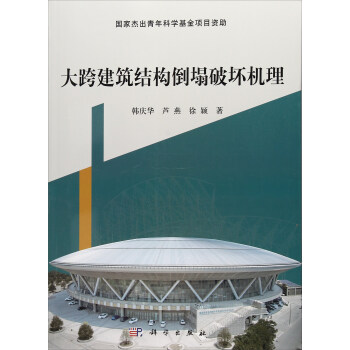

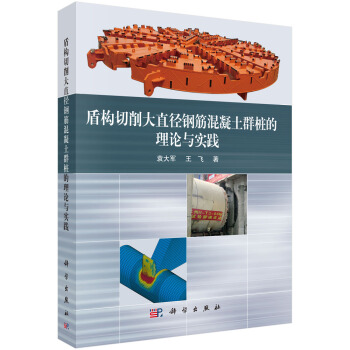
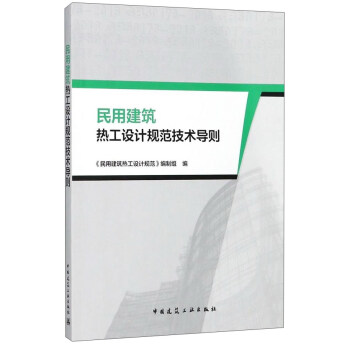
![建築工程飾麵磚粘結強度檢驗標準JGJ/T 110-2017 [Testing Standard for Adhesive Strength of Tapestry Brick of Construction Engineering] pdf epub mobi 電子書 下載](https://pic.windowsfront.com/12269730/5a4208b1Na3cb99fe.jpg)
![中國工程建設協會標準:建築工程P-BIM軟件功能與信息交換標準閤集(二) [Collection of Standards for P-BIM Software Function and Information Exchange of Building Engineering(Part II)] pdf epub mobi 電子書 下載](https://pic.windowsfront.com/12269732/5a5336daN071761a4.jpg)
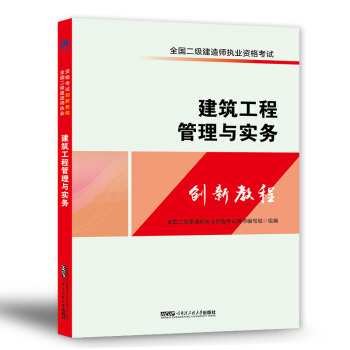
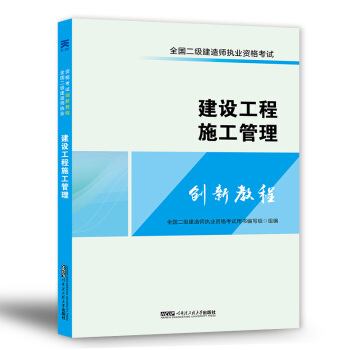
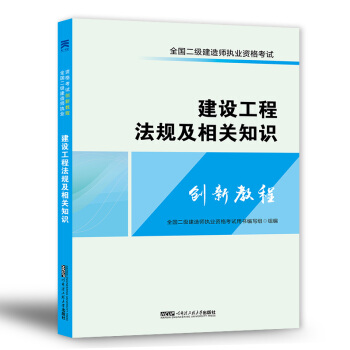
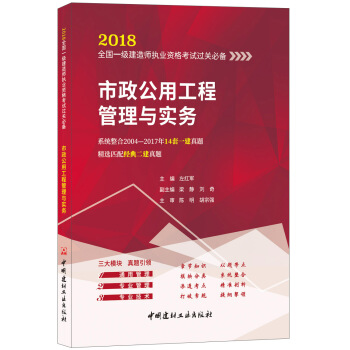


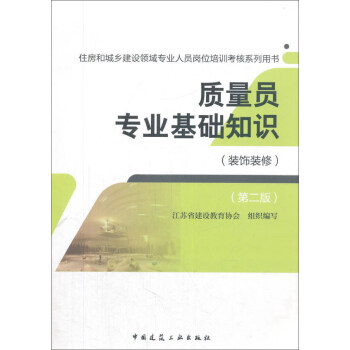
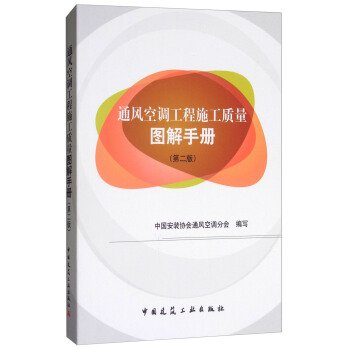
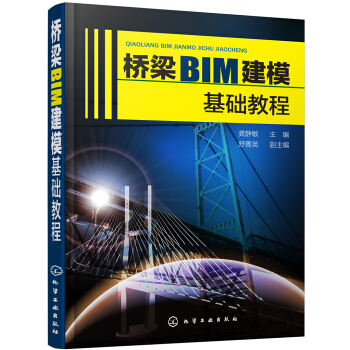
![莫伯治建築創作曆程及思想 [The Process and Philosophy of Architectural Design] pdf epub mobi 電子書 下載](https://pic.windowsfront.com/12270758/5a4208b7N36a320f6.jpg)



